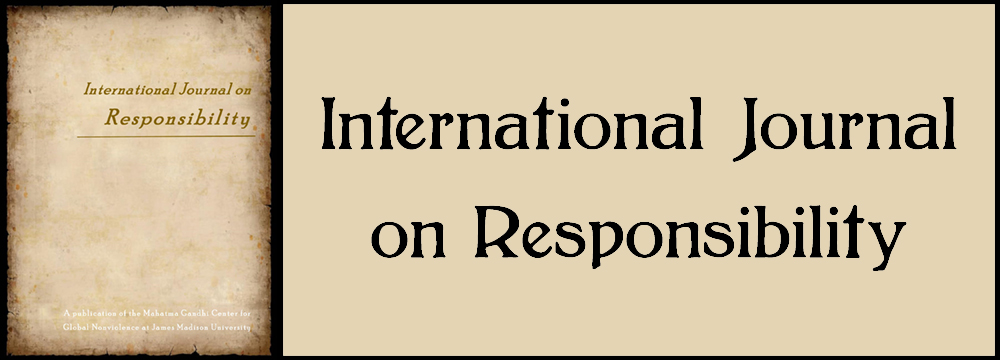
Abstract
Regardless of justification, it is commonplace throughout the U.S. criminal justice system as in everyday life to teach our offenders and children alike that wrong actions “have consequences,” namely, those authority figures promise to impose upon them. We do so in the name of holding people responsible for their actions, or in legal parlance in civil law, holding them accountable or liable. I noticed that in Norwegian, responsibility, accountability and liability translate into one word, ansvar, which I have translated from Germanic to Latin roots as “responsiveness.” In practice, the state of being responsive to others with whom one conflicts occurs when empathy moves one to recognize and accommodate the interests of others, in Roger Fisher’s terms, to shift focus from position to interests, a shift I observed as a victim-offender mediator. When we hold people responsible, we dictate rules to replace rather than invite and encourage assumption of responsibility for how ones’ actions affect others; we require obedience in place of building capacity for self-control. In legal terms, we adjudicate rather than mediate our differences. I turn from the paradox to identifying ways in which responsibility is also engendered rather than taken in our relations, inside and outside the criminal justice system, in our daily lives. I seek to recognize and encourage transition in our political culture from control by power over others to control by sharing power with others, in moments of conflict as in all our moments of cooperation.
Recommended Citation
Pepinsky, Hal
(2017)
"Resolving the Paradox of Holding People Responsible,"
International Journal on Responsibility: Vol. 1:
Iss.
1, Article 5.
DOI: https://doi.org/10.62365/2576-0955.1005
Available at:
https://commons.lib.jmu.edu/ijr/vol1/iss1/5
DOI
10.62365/2576-0955.1005
Creative Commons License

This work is licensed under a Creative Commons Attribution-NonCommercial-No Derivative Works 4.0 International License.
Included in
Criminal Law Commons, Criminology and Criminal Justice Commons, International Law Commons, Law and Politics Commons, Legal Education Commons, Legal Ethics and Professional Responsibility Commons, Legal Profession Commons, Legal Writing and Research Commons, Political Science Commons


